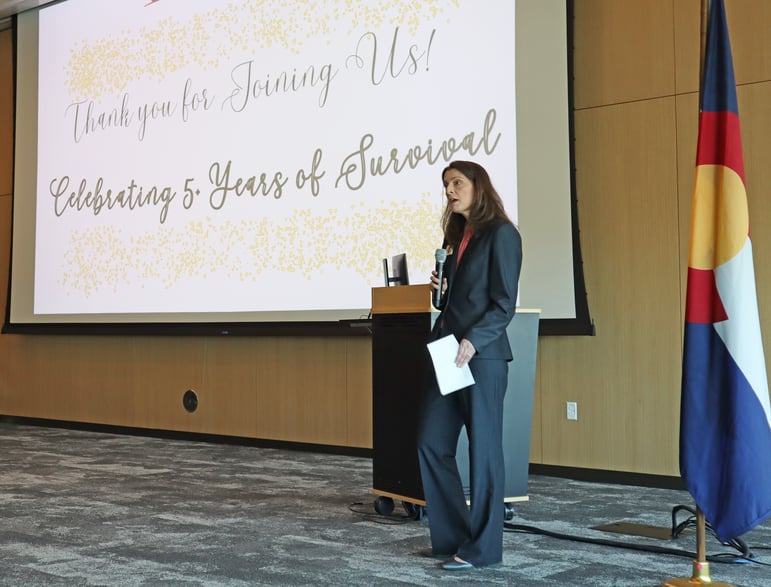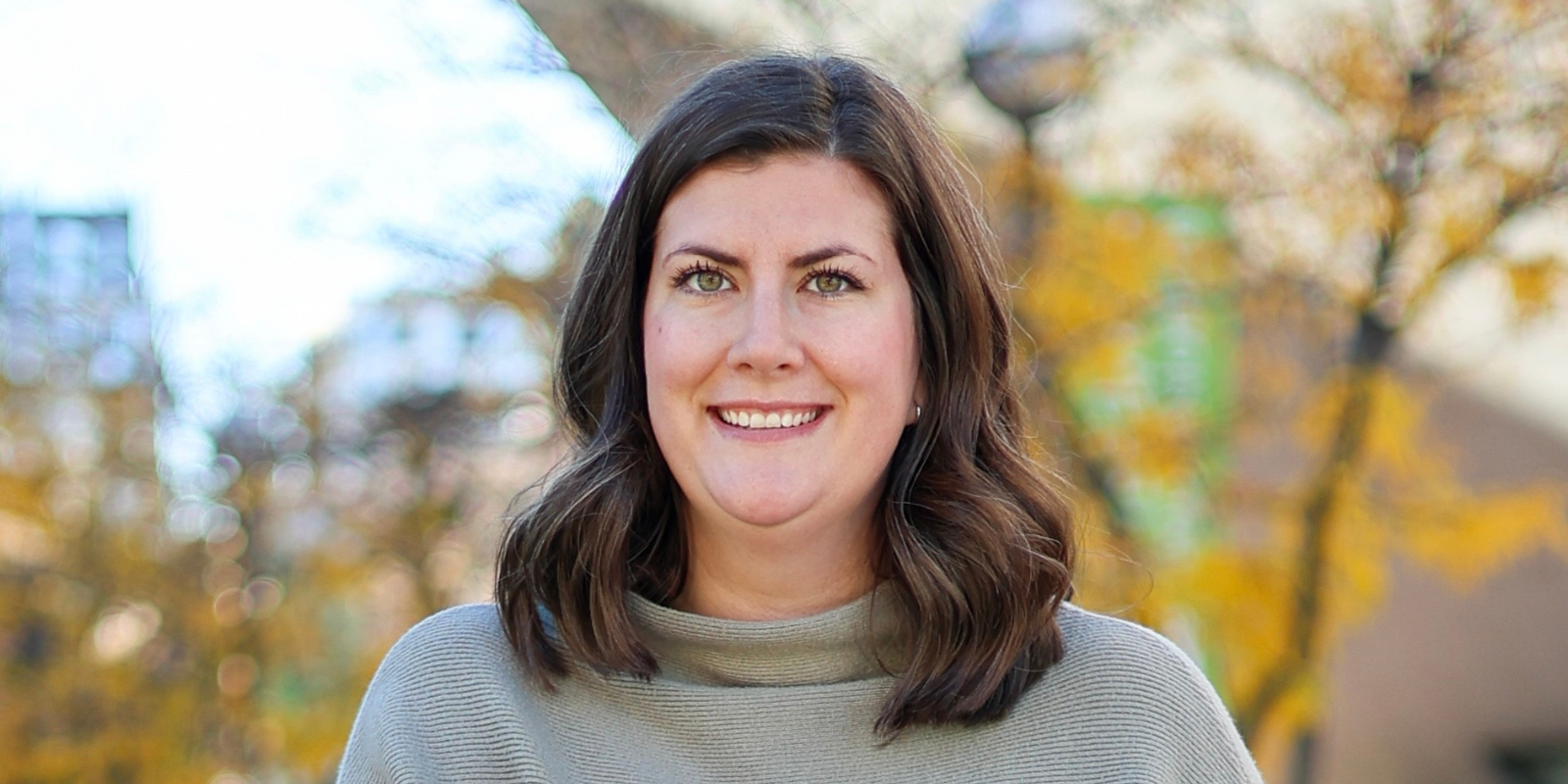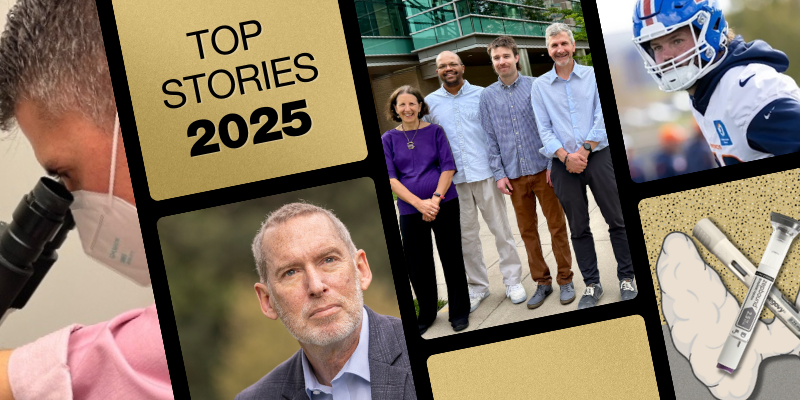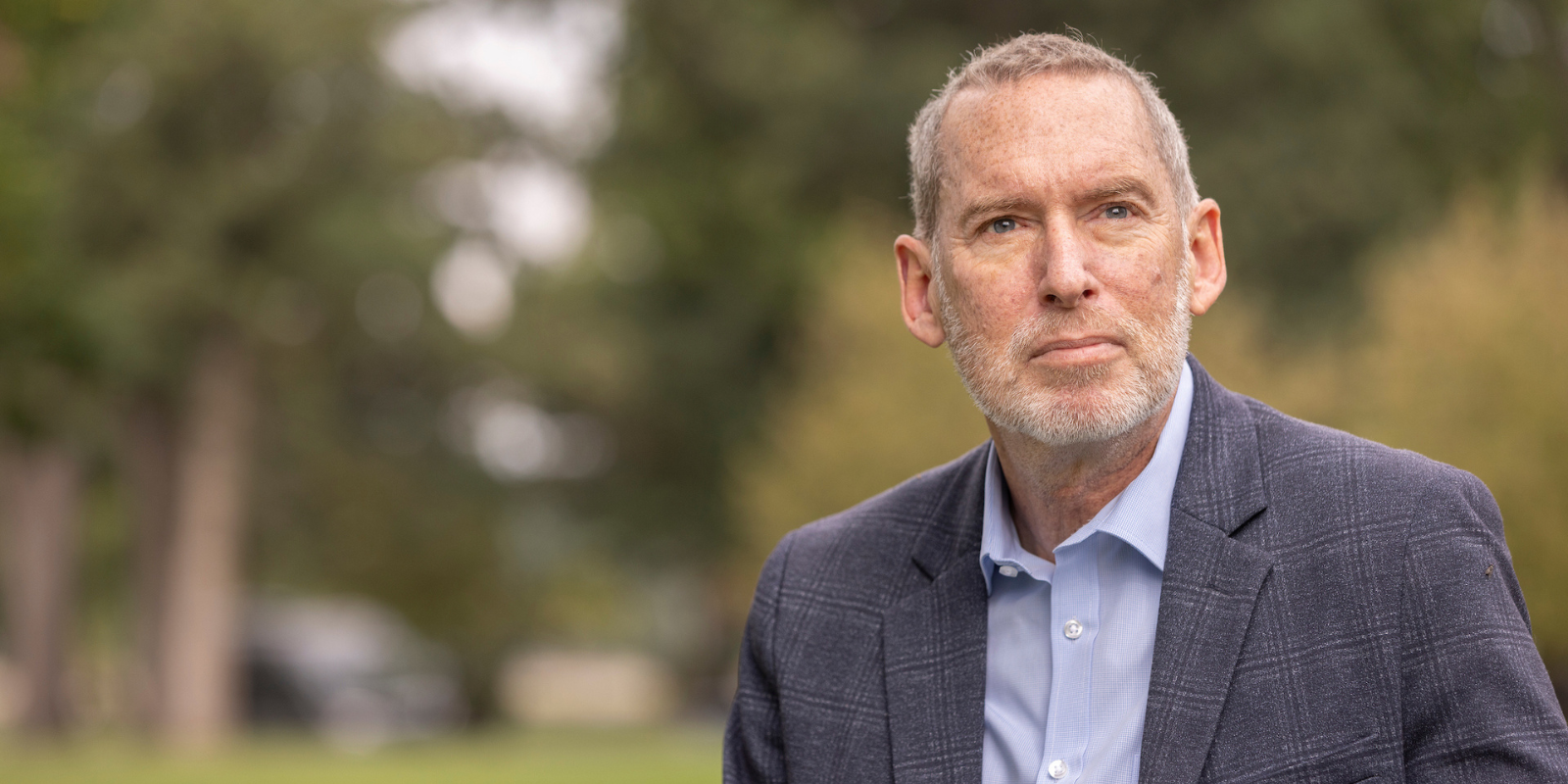Paul Herzegh’s lung cancer story began six years ago on a beautiful April morning, roadtripping back home to Boulder from visiting friends in Virginia. He was 68, in otherwise good health, and felt some small kinks in his chest.
Hardly any time later, he had a diagnosis: stage 4 adenocarcinoma, a type of cancer that originated in the cells lining the outside of his lungs. At that point, he didn’t know much beyond “the conventional wisdom that 'lung cancer is a killer,’” he explained Saturday evening, emphasizing the air quotes because, well, the conventional wisdom was wrong.
Like others at the Lung Cancer Survivorship Celebration 2023, he was at least five years beyond his diagnosis, having found a way to confidence and optimism on his survivor journey.

Erin Schenk, MD, PhD, speaks at the Lung Cancer Survivorship Celebration 2023.
“Because of the innovation happening on this campus, people who aren’t here yet – who are going through treatment – can feel hope that one day they will join us at this event,” said University of Colorado Cancer Center member Erin Schenk, MD, PhD, assistant professor of medical oncology in the CU School of Medicine and an event organizer. “We hope to be able to fill many rooms like this with survivors.”
Innovation and patient care
The Lung Cancer Survivorship Celebration, which was being held for the first time since 2019, honored not only those who were at least five years into their lung cancer survivorship, but the caretakers, clinicians, researchers, and many others who have helped the CU Thoracic Oncology Program develop into a treatment and research leader in which survival and clinical trial participation rates are well above national averages.
“The Anschutz Medical Campus has an amazing level of support and infrastructure,” said Sharon Pine, PhD, director of the Thoracic Oncology Research Initiative. “This is a place where we can take the most important, unmet clinical needs directly to the laboratory. There’s a can-do attitude where you have an idea and everyone says, ‘Wow, go for it.’ If we can overcome problems in the laboratory and translate those findings to the clinic, that’s what we’re all about.”
Wells Messersmith, MD, associate director of clinical services in the CU Cancer Center, emphasized that even as the CU Cancer Center grows – providers saw 58,000 unique patients in 2022 across all cancers and are on track to exceed 250,000 patient visits this year – clinicians and researchers remain committed to advancing science and treatment to benefit patients throughout the region.
“We are well-positioned to take advantage of novel therapies; for example, we’re one of the only facilities in Colorado doing genetically engineered CAR T-cell infusions,” Messersmith said. “Every day, we’re trying to hold ourselves to the highest standards for our patients.”
Thoracic medical oncologist Tejas Patil, MD, plays Rhapsody No. 2 in G Minor, Op. 79 by Johannes Brahms at Saturday's celebration.
It was that continual striving for excellence that helped Herzegh, in part, emerge from a mindset of everything being wrong – prompted by “some inadvisable time Googling,” he said – to a place of confidence in the medical resources available to him and “optimism that I could find a way through my state of disease.”
His multidisciplinary treatment team found Herzegh’s cancer had a high expression of PD-L1, and for three years he responded well to the immunotherapy pembrolizumab. Then the cancer that spread to some lymph nodes was successfully treated with radiation, and when new tumors were discovered in his lungs during the third year of his lung cancer journey, four cycles of chemotherapy quieted “the civil war that had been going on in my chest,” Herzegh said.
Living bigger and bolder
For Heather Smith, who flew in from Wisconsin for the celebration Saturday, being diagnosed seven years ago with stage 4 ALK-positive lung cancer forced her to realize that living with her diagnosis had to mean more than just “moving my human meat suit through the day, not knowing if I was living or dying, telling myself I was never going to hear the coveted words ‘you are in remission,’” she said.
After reaching a very low point in August 2019, when her brain metastases were racing almost out of control and she had multiple seizures while walking her dogs one evening, she heard the voice of her aunt, a two-time cancer survivor. In her head, Smith heard her aunt say, “You are doing this wrong.”
She had gone from a bright, bubbly ray of sunshine to a sad woman whose thoughts created a life of drudgery, and she was done being that sad woman.
To her fellow survivors, she said, “Despite perpetual reminders of your own mortality, you’re here living a bigger, bolder, more beautiful life because of cancer. Focus on the life that feels amazing to you. I live with my diagnosis more peacefully now than I did in year one, because it does not live my life for me. I do.”
Herzegh, who has learned to wake surf and trained to become a pilot since his diagnosis, echoed the sentiment: “Just keep up the damn good fight. Enjoy every day, enjoy every year that your success brings. I look forward to seeing each and every one of you here again next year.”



